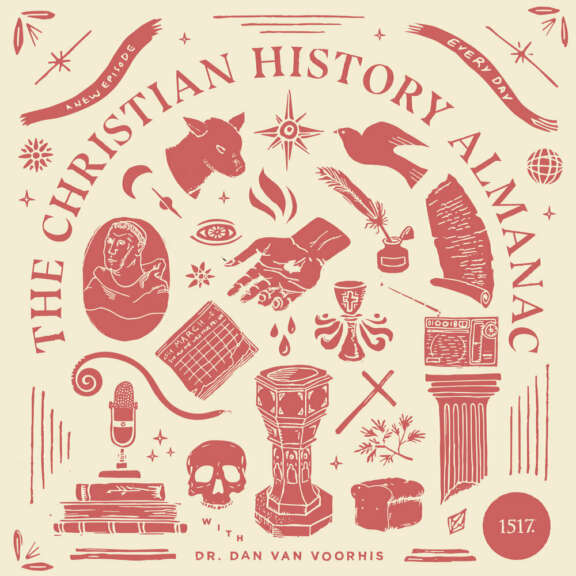Free Will Isn’t All It’s Cracked Up to Be. In this episode, more from Luther’s Galatians lectures. This week, God’s will, free will, identity, and taking the moral low ground.
Podcasts
Each 1517 Podcast is dedicated to delivering Christ-centered content through weekly, monthly, and seasonal audio platforms. Listen online or on your favorite podcasting app.
Author
- All Authors
- Aaron Zimmerman
- Adam Francisco
- Amy Mantravadi
- Blake Flattley
- Bob Hiller
- Bradley Gray
- Brian W. Thomas
- Bror Erickson
- Bruce Hillman
- Caleb Keith
- Chad Bird
- Chris Rosebrough
- Christopher Gillespie
- Cindy Koch
- Craig Donofrio
- Dan van Voorhis
- Daniel Deen
- Daniel Emery Price
- Darrin Sheek
- David Andersen
- David Rufner
- David Zahl
- Debi Winrich
- Delwyn Campbell
- Donavon Riley
- Doug Klembara
- Edward Killian
- Elyse Fitzpatrick
- Erick Sorensen
- Flame
- Grant Klembara
- Gretchen Ronnevik
- Haroldo Camacho
- Jacob Smith
- Jared C. Wilson
- Jeff Mallinson
- Jeffrey Pulse
- Jessica Thompson
- Jim Nestingen
- Joel Fitzpatrick
- Joel Hess
- John Andrew Schreiner
- John Bombaro
- John T. Pless
- John W. Hoyum
- John Warwick Montgomery
- Katie Koplin
- Kelsi Klembara
- Ken Sundet Jones
- Magnus Persson
- Matt Popovits
- Michael Berg
- Michael Horton
- Nick Lannon
- Paul Koch
- Peter Nafzger
- Philip Bartelt
- Raleigh Sadler
- RJ Grunewald
- Robert Kolb
- Rod Rosenbladt
- Ron Hodel
- Sam Leanza Ortiz
- Sarah Condon
- Sarah Crowder
- Scott Davis
- Scott Keith
- Steven Paulson
- Tanner Olson
- Troy Neujahr
- Uwe Siemon-Netto
- Wade Johnston
- William Cwirla
-
The year was 1925. We remember noted famed missions founder, Dr. Kate Waller Barrett. The reading is the Lenten hymn "Lord Who Through These 40 Days" by Claudia Frances Hernaman.
-
The year was 1943. We remember Christoph Probst, Hans Scholl, and Sophie Scholl. The reading for today is a short inscription from Sophie Scholl's diary.
-
The year was 1869. We remember the baptism of Ranavalona II. The reading for today comes from Christopher Smart, a reflection on Abraham, "Faith."
-
Free For It All. This week on the podcast, we continue our Lenten series on Christian freedom in Martin Luther’s Galatians lectures. In this episode, Gospel, Satan, and competing freedoms.
-
The year was 1977. We remember Ugandan martyr Archbishop Janani Luwum. The reading for today comes from Henry Vaughn, “The Revival.”
-
The year was 1401. We remember the Lollard uprising of the 15th century and the fracturing of the church in England. Today's reading comes from Walter Brueggeman, "A Way Other Than Our Own, Devotions for Lent."
-
Lent Is About Freedom. In this episode, we read Martin Luther’s 1525 Galatians commentary. Why is freedom a vulgar word to the old Adam? And we consider why freedom must be Lent's primary focus for Christians.
-
The year was 1516. We remember Queen Mary I, daughter of Henry and sister of Elizabeth. The reading for today comes from Christina Rossetti, "Lent."
-
Today we celebrate a blessed, happy, solemn Ash Wednesday. The reading for today comes from Malcolm Guite, “ Ash Wednesday.”
-
The year was 600. We remember how Gregory the Great unified the western world by decreeing that "God Bless you" was the only form of post-sneeze benediction. The last word for today comes from Stanley Hauerwas, from his commentary on the book of Matthew.
-
The year was 1905. We remember Lewis Wallace. Today's reading comes from John Newton, "Come, My Soul, Thy Suit Prepare."

